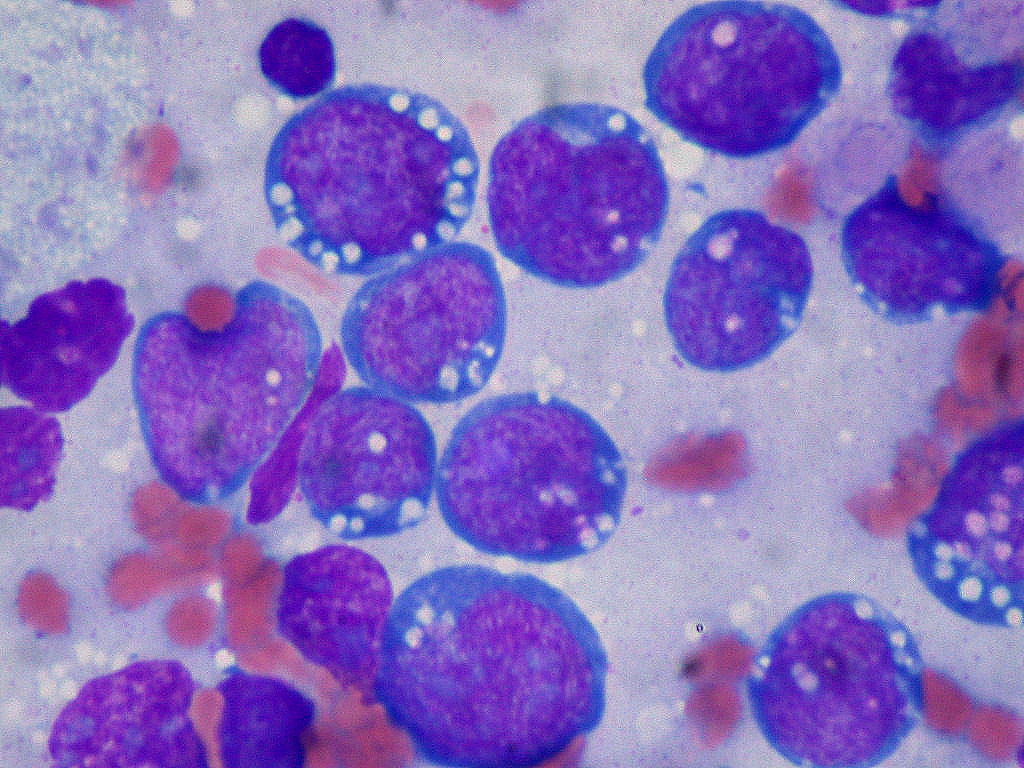Burkitt lymphoma is a type of tumor that is the fastest-growing tumor in humans. The endemic type of Burkitt lymphomas is common in Africa and often manifests as swelling of the mandible (jaw bone) or facial bone.
In sporadic (non-African) Burkitt lymphomas, abdominal lesions dominate, often originating from the ileocecal valve or the mesentery area. These tumors can also cause intestinal obstruction and external complications such as the brain and even affect other parenchymal organs.

On the other hand, there is a positive effect of Fucoidan, which is a sulfated polysaccharide in brown seaweed. It has several biological activities such as antivirus, anti-inflammation, and antitumor.
So, in this blog, I would like to share how Fucoidan affects Burkitt lymphoma cells by going through the study, “Fucoidan Induces Apoptosis of Human HS-Sultan Cells Accompanied by Activation of Caspase-3 and Down-Regulation of ERK Pathway” by Yoshinobu Aisa et al.
First, researchers investigated the growth inhibitory effect of Fucoidan extracted from Fucus vesiculous.
Fucoidan-induced apoptosis was accompanied by activation of caspase-3 and was partially prevented by pretreatment with the pan-caspase inhibitor Z-VAD-FMK. The mitochondrial potential of HS-sultan (Burkitt lymphoma) cells decreased 24 hours after treatment with Fucoidan. It indicates that Fucoidan induced apoptosis via the mitochondrial pathway. (See Fig. 1)
Next, they observed that Fucoidan induced caspase-dependent apoptosis in HS-Sultan cells. To investigate fucoidan-induced intracellular signaling, they analyzed the phosphorylation of ERK and Akt pathways by Western blot.
Twenty-four hours after treatment with 100 mg/mL fucoidan, phosphorylation of ERK was down-regulated. It was observed that p38, one of the ERK pathways, is involved in apoptosis and cellular differentiation. Phosphorylation of p38, or Akt kinase, was not altered by fucoidan treatment in HS-Sultan.
As a result, phosphorylation of GSK was decreased by Fucoidan in HS-Sultan (See Fig. 2).
This downregulation of GSK and ERK by Fucoidan may have contributed to fucoidan-induced apoptosis in HS-sultan cells, as dephosphorylation of GSK and ERK was involved in inducing apoptosis.
On the contrary, the phosphorylation of p38 and Akt was unchanged by treatment with Fucoidan. These results indicate that Fucoidan has a direct anti-cancer effect on human HS-sultan cells via the caspase and ERK pathways.
The above results show Fucoidan has an excellent effect on human HS-sultan cells. Hence, Fucoidan can deliver positive results for inhibiting Burkitt Lymphoma cells.
Fig. 1) Fucoidan-induced apoptosis in HS-Sultan cells




